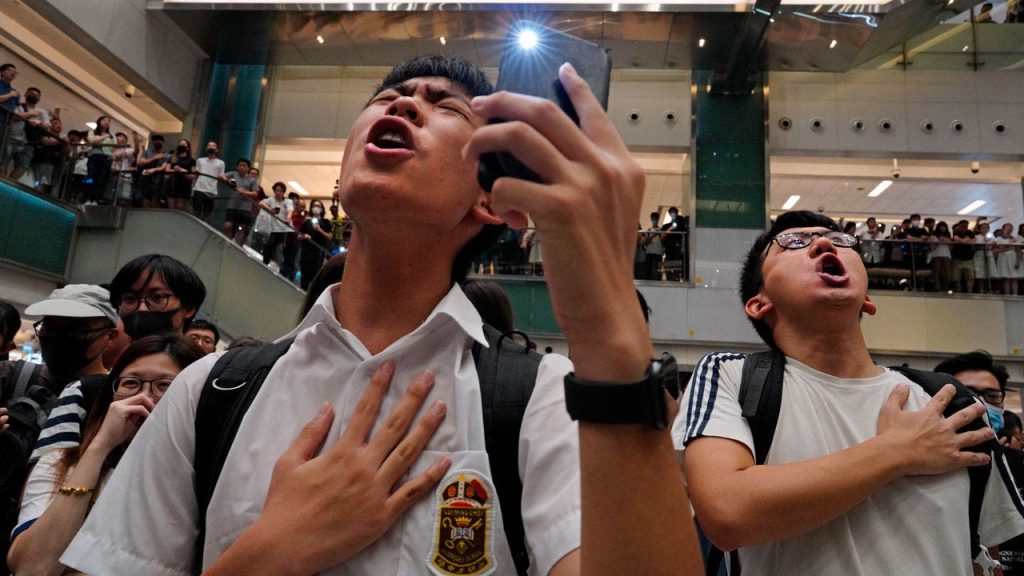An appeals court in Hong Kong has granted the government’s request to ban the popular protest song, “Glory to Hong Kong,” which was a rallying cry during the 2019 anti-government protests that rocked the city. This decision overturns an earlier ruling and has raised concerns about the erosion of freedoms in the once-freewheeling global financial hub. The ban marks the first time a song has been prohibited in the city since it was returned to Chinese rule in 1997, amidst the ongoing crackdown on dissent by Beijing.
The decision to ban the song has faced criticism from rights groups and activists who argue that it further restricts freedom of expression in Hong Kong. Critics have also expressed concern that the ban on the song could disrupt the operations of tech companies and damage the city’s reputation as a business hub. Judge Jeremy Poon stated that the injunction against the song was necessary to compel internet platform operators to remove videos associated with it, and to prevent the song from being used to advocate for Hong Kong’s separation from China.
Under the ban, anyone who broadcasts or distributes the song to promote independence for Hong Kong could face legal consequences. The ban also prohibits any actions that misrepresent the song as the national anthem with the intent to insult the anthem. However, the song can still be played for lawful journalistic and academic activities. Failure to comply with the court order may result in contempt of court charges, with offenders facing fines or imprisonment.
In response to the ban, tech companies such as Google, Spotify, and Apple have been reviewing the court judgment to determine how to comply with the order. This has raised questions about how companies can restrict access to the content in a specific region to meet legal requirements. The ban has also sparked concerns about the impact it may have on free speech in Hong Kong and whether such restrictions will become the norm, setting a worrying precedent for internet freedom in the city.
The ban on “Glory to Hong Kong” comes as Beijing continues to tighten its grip on the semi-autonomous territory through the imposition of a national security law and a home-grown security law. These laws have been used to crack down on pro-democracy activists, leading to fears that Hong Kong’s Western-style civil liberties are being further curtailed. The national security law was invoked by Chinese authorities as a necessary measure to prevent the use of the song to incite division and insult the national anthem, highlighting the government’s justification for the ban.


